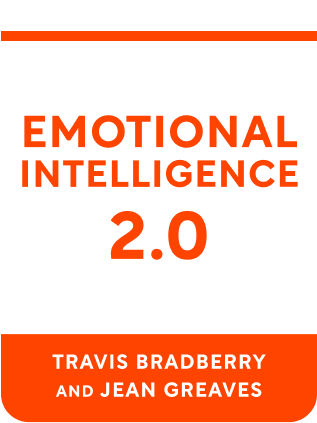

This article is an excerpt from the Shortform book guide to "Emotional Intelligence 2.0" by Travis Bradberry and Jean Greaves. Shortform has the world's best summaries and analyses of books you should be reading.
Like this article? Sign up for a free trial here .
What are the 4 pillars of emotional intelligence? How do they come together to make up the EQ construct?
There are 4 pillars of emotional intelligence: self-awareness, self-management, social awareness, and relationship management. Each pillar is essentially a set of skills that pertain to the corresponding domain of emotional intelligence.
Keep reading for more about the 4 pillars of emotional intelligence.
What Are the Four Pillars of Emotional Intelligence?
The emotional intelligence (EQ) construct consists of 4 pillars that determine how we handle different aspects of our emotional world: self-awareness, self-management, social awareness, and relationship management.
Self-Awareness
Self-awareness is your ability to identify your emotions as they occur and recognize your tendencies during different scenarios.
People with high levels of self-awareness:
- Recognize the people or situations that upset them
- Notice patterns of behavior in specific situations
- For example, they may recognize that they get angry when someone wastes their time or nervous when a particular person enters the room.
- Embrace emotional outbursts as learning opportunities
- Take time to decipher the reasons behind their emotional responses
- Know what they do well, and what they don’t
- Understand the things that motivate them
Self-Management
After you’ve strengthened your self-awareness skills, you can begin to develop self-management. Self-management is the ability to use your self-awareness to manage your emotions and stay in control of your behavior.
People with high-levels of self-management:
- Control reactive behavior
- Do not allow their emotions to dictate their decisions
- Find peace with uncertainty
- Navigate complex situations patiently
- See projects through to the end regardless of frustration
- Focus on long-term development
Social Awareness
Once you have the ability to understand and manage your own emotions, you can begin to develop social awareness. Social awareness is the ability to identify emotions in other people and understand the reasons behind them.
People with high levels of social awareness:
- Give others the opportunity to speak
- Actively listen
- They stop what they’re doing and turn their full attention to the other person
- Pick up on cues that reveal emotion
- For example, if someone’s hand is shaking as they speak to you, they may be nervous or angry.
- Take in important information without bias
- Adapt to the emotional climate
- Develop empathy for the people around them
Relationship Management
Once you have a handle on your own emotions and can recognize the emotions of the people around you, you can begin to develop relationship management. Relationship management is the use of your self- and social awareness to develop your relationships with other people.
People with high levels of relationship management:
- Connect with a multitude of people
- Interact with people frequently
- Find the benefits in every relationship
- Create an environment that promotes discussion and connection
- Handle stressful situations well
- Develop a strong rapport with coworkers—even with people they do not inherently agree with

———End of Preview———
Like what you just read? Read the rest of the world's best book summary and analysis of Travis Bradberry and Jean Greaves's "Emotional Intelligence 2.0" at Shortform .
Here's what you'll find in our full Emotional Intelligence 2.0 summary :
- What emotional intelligence is and why it's essential for your workplace success
- The 4 reasons you need to work on your EQ
- How you can use EQ to better manage relationships






